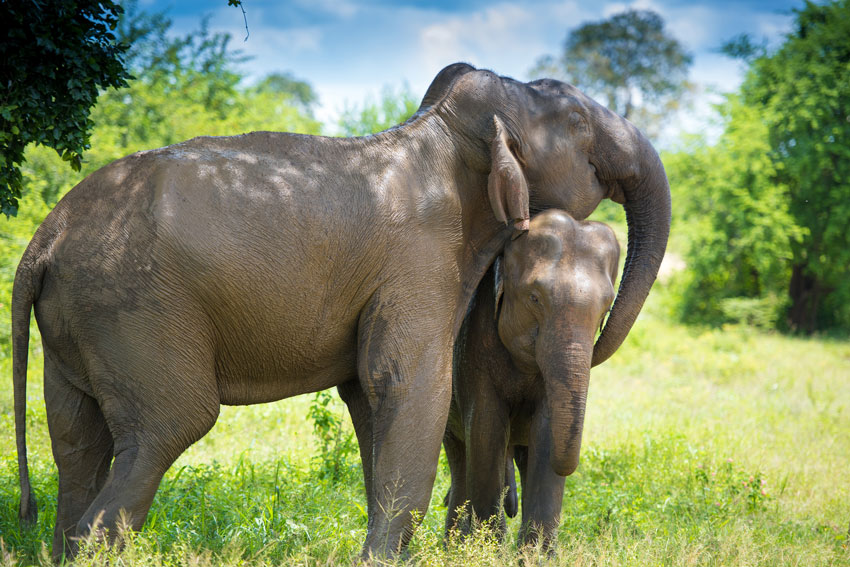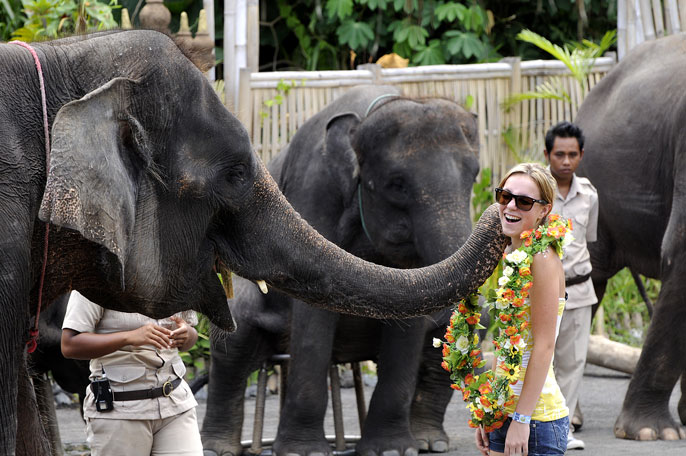At Bali Safari Park, we work very closely with elephants. Believe it or not, we have learned many things about love and relationships by observing the social behavior of elephants.
Elephants are intelligent, empathetic mammals, and very often display complex emotions to each other in their herd as well as with us – yes, we understand them, and they seem to understand us!
In our previous blog post, we wrote about some of the emotions elephants are able to express: the ultimate joy of greeting a newborn; the playful affection of a mother to her calf; the feeling of grief when encountering a deceased elephant; the anger to certain groups of animals (and people) who have threatened their herd in the past; and the compassion towards injured or upset members.
The power of trust

Empathy and trust are key characteristics of an effective herd. Without either of them, it is difficult for elephants to work together and achieve common goals.
Elephants are led by a matriarch, a female leading elephant who is much older than the other members. She is usually experienced in navigating the land and leads migrations towards the right places for feeding and breeding.
Matriarchs seem to be able to organize the herd when facing difficult situations, such as when being hunted by predators, or when a member gives birth.
A unique thing about elephant herd behavior is that the leader is not necessarily the most powerful physically. According to research on elephant leadership, elephants value older members with superior knowledge. Like humans, they ‘respect’ the elders.
Such behavior requires immense trust between the aging leader and her younger, stronger subordinates.
The power of empathy

Elephants seem to understand how situations affect one another.
For example, when a member is injured and couldn’t walk as fast as everyone else, the herd slows down to ensure that the injured would not be left behind. If elephants cannot understand the difficulties the wounded elephant faces, this wouldn’t happen.
When a mother is about to give birth, she would be most vulnerable to attacks by predators. Scientists have observed one herd surround the birthing mother, protecting her from a possible attack. This behavior wouldn’t be possible if elephants cannot understand that the birthing mother cannot defend herself in that situation.
Empathy has served as a bridge of communication between herd members, and trust allows strong bonds to develop among elephants, as they seem to know that cooperation is the best way to obtain safety and security.
Meet our elephant friends, and go on a Safari together

To connect better with elephants, why not go on a Safari together with them? Bali Safari Park’s Elephant Back Safari allows you to experience wildlife in the African Bushveld much closer than ever. With no doors or windows, an educational ride on an elephant means you feel the open air and have an unobstructed view of wildebeests, zebras, and rhinoceros!
The guided tour by qualified mahouts will reward you with a special insight into the intelligence and private life of these gentle giants. In addition, you get to interact with the free-roaming African herbivores. Join us today on Bali Safari Park!






